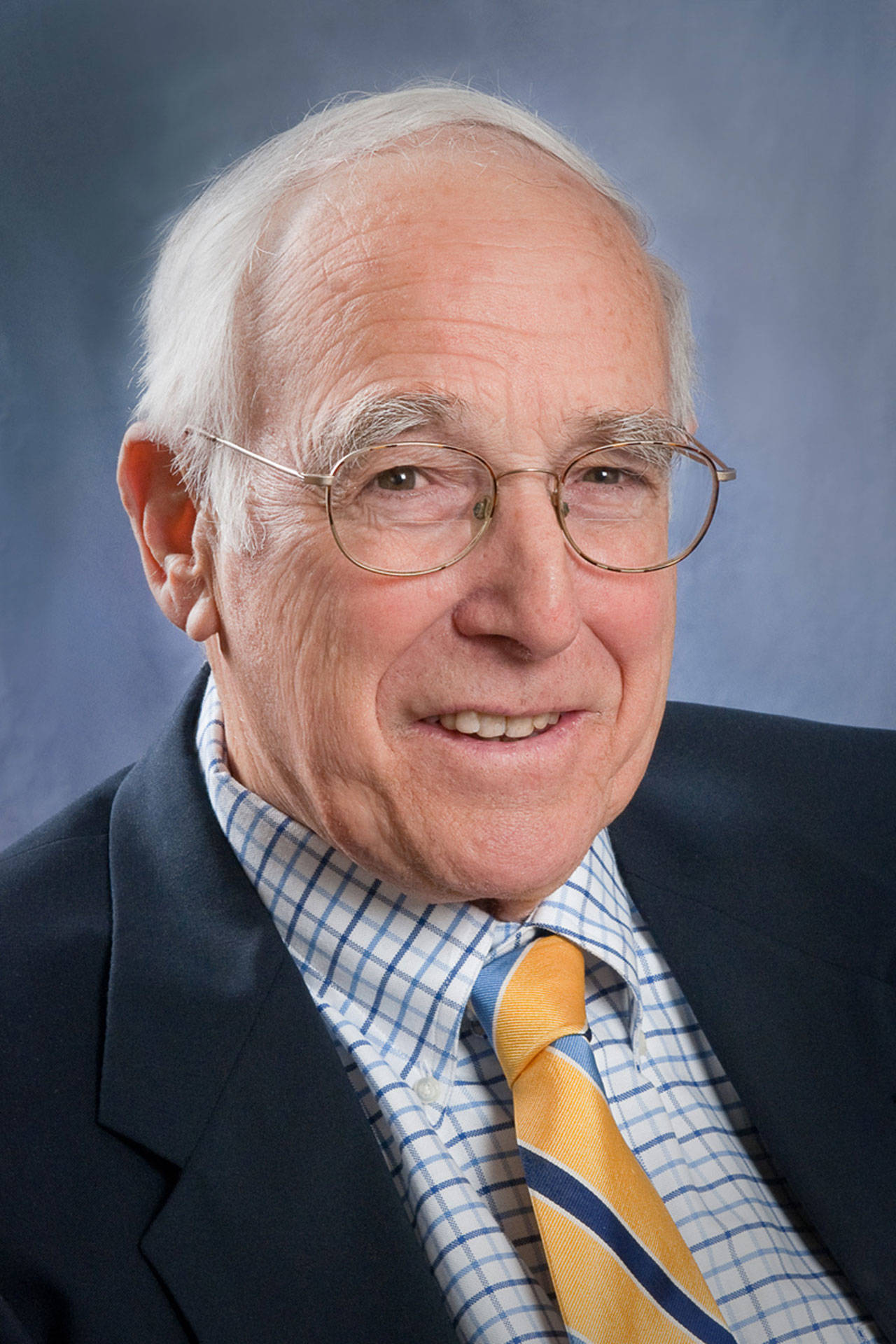Sickness and disease can be terrifying, and health care policies can be both frustratingly complex and highly controversial. While political sides argue over Obamacare versus Trumpcare, Dr. John Geyman advocates a third option.
“It [National Health Care] is our only common sense alternative to effectively reform U.S health care, “Geyman writes in the beginning of his book “Common Sense about Health Care Reform in America,” a Thomas Paine “Common Sense”-styled pamphlet.
On Wednesday, July 19, at the San Juan Island Library, Geyman spoke about another of his books “Crisis in U.S. Health Care: Corporate Power versus the Common Good” and his views on health care. The event was co-sponsored Griffin Bay Books.
Geyman, now a professor emertius of family medicine at the University of Washington School of Medicine in Seattle, spent years as a doctor in big cities, served as chairman of the Department of Family Medicine from 1976 to 1990, and was president of the Physicians for National Health Program from 2005 to 2007. He has written many books, most of which can be found at the San Juan Island Library, which Boyd Pratt, the library’s adult programs associate, pointed out as he introduced Geyman.
“I don’t have a lot of good news,” Geyman began as he explained the looming issues of the Affordable Care Act (Obamacare) and the American Health Care Act (Trumpcare). The root of the problem with both programs, he explained is making a profit off of people’s health. As long as there is a market driven healthcare system, there will be insurance companies fighting to insure the young, fit and healthy, while the people who need healthcare — the unfit, sick and elderly — will not receive coverage.
Under a national health care system, Geyman explained, the focus would be about health rather than trying to turn someone’s health into a commodity. As a result, the sick would get any available treatment, and everyone would automatically have access to care, as there would be no reliance on barriers such as income or gender to maintain affordability.
Despite fears that a national system would create limited choices, Geyman believes it would increase the ability to choose health care providers because it would eliminate restricted networks of insurance companies.
It would also be a win for nurses and doctors. Nurses would have a stable funding and “less frustration with arbitrary, financially driven anti-nurse cost-cutting,” he writes in “Common Sense about Health Care Reform.” Doctors, in turn, would face less burn out with more support.
There would be a tremendous saving, as 95 percent of American taxpayers, according to Geyman, would pay less in taxes due to overall health care cost savings, primarily in administrative areas.
He tells the story of meeting a gentleman from Europe who showed him what a national health card looked like. The man told Geyman he was covered not just in his own country, but all throughout Europe. Meanwhile, America is rated toward the bottom for its health care amongst western countries.
Of the Republican AHCA plan, Geyman said, “It has been tried for 20 years, and it doesn’t work.”
Some of the new ideas incorporated into the ACHCA are also troublesome. Block Grants from the federal government would pay states to spend on health care as they wished, allowing states to determine who could be covered for what.
Using Medicare as another example, Geyman noted that some states have privatized Medicare and it has not worked out well.
“States that have privatized Medicare have worse coverage than those that do not,” he said.
A few adverse impacts to an ACA repeal that the U.S. Senate has been attempting to vote on for months would cause:
- More Americans to go bankrupt due to family health crises.
- Fewer physicians to have their own private practice; already two-thirds of all physicians work for a larger health company, and under AHCA, the other third would struggle.
- Premiums to skyrocket, and as a result, there would be an epidemic of under and uninsured citizens. Meanwhile, insurance companies would rake in the money.
Geyman quoted writer and consumer advocate Wendell Potter, “Many of us can’t be persuaded that we are being duped. Meanwhile, shareholders of the big-for-profits are laughing all the way to the bank.”
One audience member asked if the government could gradually increase Medicare, eventually creating a national healthcare system.
“It’s going to be a battle royal no matter what we do,” Geyman said, explaining that trying to achieve a single payer system incrementally will just delay it. Unfortunately, he added, politicians have shied away from supporting national health care because it has been unpopular amongst voters. Americans have tended to feel a government-run health care system would be clunky, expensive and restrict freedoms. A few voters also don’t believe healthcare is a right, but a benefit of the wealthy. With recent debates on the ACA and the AHCA, those views seem to be shifting, Gyeman believes, which is his good news.
“If we get the public behind National Health Care, politicians will do what works,” he said.
Another attendee asked what people could do. Writing and calling representatives like Patty Murray and Maria Cantwell was one of his answers.
Contact Murray at 2988 Jackson Federal Building, 915 2nd Avenue, Seattle, WA, 98174 or 206-553-0891.
Contact Cantwell at 915 Second Ave Suite 3206, Seattle, WA ,98174 or 206-220-6400.
Beginning a grassroots movement was another suggestion.
“I think it can happen,” he said. “We all have to speak out and rediscover our democracy.”
For information, read “Common Sense about Health Care Reform in America,” or “Crisis in U.S. Health Care: Corporate Power versus the Common Good” by John Geyman, at Griffin Bay Bookstore and the library.



